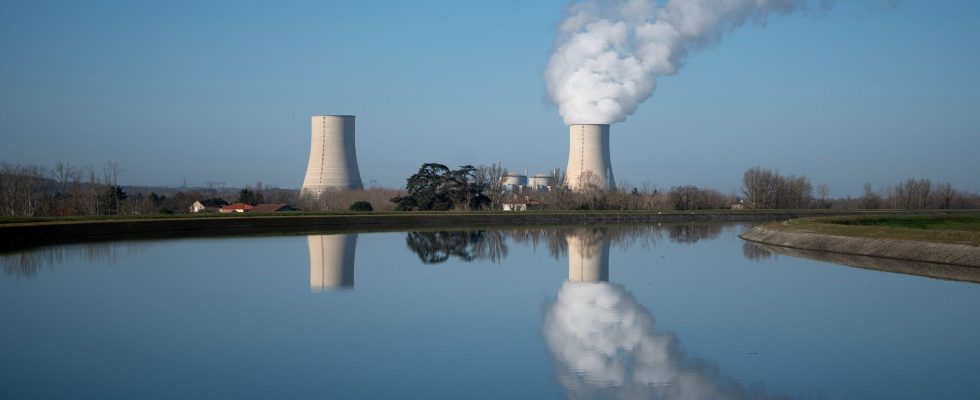We needed an action plan, here it is. The nuclear sector presents, Friday, June 9, to the government a “Marshall plan” intended to attract and train the 100,000 agents that it considers necessary in the ten years to accompany the revival of the atom in France. Today, “the main issue is an issue of attractiveness: the training courses already exist but they are not well known and it is a question of filling them”, explained Hélène Badia, president of the “University of nuclear professions “, an entity created in 2021 by companies in the sector. It must be said that the sector is substantial, with 2,500 companies and 220,000 jobs – nearly 7% of industrial employment in France – while sheltering trades in tension.
“We will have to recruit 4,000 engineers a year in the coming years and for a long period. This costs money, but above all it will be necessary to find them”, already noted Bernard Doroszczuk, the president of the Nuclear Safety Authority (ASN) in the newspaper The cross in January 2022. For its part, the Gifen (Editor’s note, the Group of French industrialists of nuclear energy, a professional federation which federates companies in the nuclear sector), estimated at 100,000 people its recruitment needs by 2030. As a reminder, EDF had to call on North American welders as reinforcements in 2022. Among the other needs: pipe fitter, cable fitter, boilermaker and electrician…
Considerable means
Extending the lifespan of the reactors and launching a construction program will require considerable human, material and financial resources. The plan will be presented to the three ministers concerned, Energy Transition, Research and Vocational Training, during a trip to Normandy, “nuclear land” as described by the cabinet of Agnès Pannier. -Runacher, Minister of Energy Transition, since the region is home to nine reactors. Normandy will host, in Penly (Seine-Maritime), at best from 2035, the first pair of future EPR2 reactors desired by the government, which aims for a first series of six units.
Hélène Badia’s plan contains “concrete actions, to meet considerable needs”, she described during a conference with journalists. Among them, a general public website (monavenirdanslenucleaire.fr), a nuclear career week organized with Pôle emploi (the first edition of which took place this year), measures to include as many people as possible (women, populations from priority neighborhoods in the city and rural areas, creation of bridging classes for students who are failing at school, recruitment through sport, etc.), increase in retraining, presentation of these jobs in college and this from the start of the next school year, etc.
Start-up financing assistance
On Friday, Ministers Sylvie Retailleau, for Higher Education and Research, Agnès Pannier-Runacher, for Energy Transition, and Carole Grandjean, in charge of Vocational Education and Training must also announce the allocation of 25 million euros to two French “innovative reactor” projects as part of the France 2030 investment program: the start-up Newcleo, which is working on a fast neutron reactor using lead, and the start-up Naarea, which wants to developed a “4th generation micro-generator operating on molten salts” from used fuel. “This grant gives us visibility and credibility. It is an additional lever to attract private funding and continue to hire”, in order to increase the workforce from 140 to 200 employees, explained to our colleagues from the Figaro Jean-Luc Alexandre, CEO of Naarea.
This ministerial trip on Friday, devoted to training and research, will pass by the University of Caen Basse-Normandie and the site of the Great National Heavy Ion Accelerator (GANIL), a fundamental nuclear physics research facility.
On May 31, in an interview with The ExpressAgnès Pannier-Runacher, had declared about her atom policy: “So we have not stopped pushing in the right direction. But I measure how long it takes to relaunch a nuclear policy.” While admitting the challenges that have presented themselves to the government: “The production of electricity from nuclear sources in 2022 was 30% lower than that achieved in 2021 This drop in production is mainly due to the accumulation of maintenance delays due to Covid, the fourth ten-year inspection and stress corrosion.”
The French divided on nuclear power. In total, 47% of them lean towards the atom as the preferred energy according to the results of an opinion poll by the Odoxa Institute and the private consulting firm Backbone Consulting and conducted for Le Figaro with 1005 French people.
> FIND THE ARTICLES IN OUR FILE: “They are torpedoing our nuclear”
